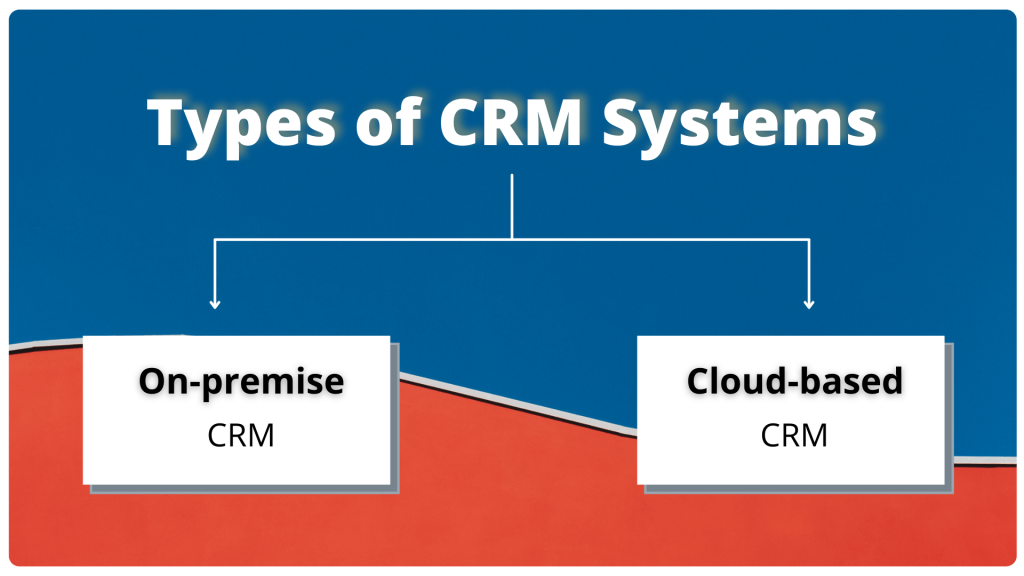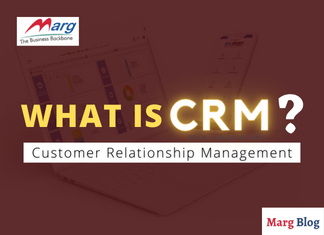Table of Contents
ToggleArticle Content | Customer Relationship Management
What is CRM Stand for?
CRM stands for “Customer Relationship Management”. CRM is a comprehensive system that helps you manage your customers in better way. It helps in managing and enhancing relationships with customers.
You can use CRM software to maintain records of transactions, data, history etc. of customers. The data is stored on the cloud or in a central database which is accessible to multiple people in the organization based on the rights allotted.
Apart from keeping records, a CRM system helps in streamlining business operations like sales, marketing, customer service, accounting & more. The business owner can also set user access rights to edit & view the customer’s journey.
A customer-first enters your CRM system through your website or by filling out a demo form. After a few follow-ups of the sales representatives, you get to know the information of the customer and record it in your database. Later you can refer to that information &utilize it for creating the best appealing marketing strategies.
Data may be filled automatically or it may need manual intervention, having everything on one platform reduces unnecessary clutter & paperwork. Using a CRM system also improves customer satisfaction & speeds up communication.
Let us know about CRM in detail.
How CRM helps businesses?
A CRM system helps businesses in many ways. It gives the overall picture of your customers to plan your strategies accordingly. A simple customizable dashboard lets you see everything in one place. You can keep a track of the customer’s previous history, order status, out standings, service issues and more.
The overall goal of using customer relationship management is to improve customer experience & increase sales. In general, CRM best works for service providers & considered purchases like jewelers, landscapers, lawyers, accountants, retailers & more.
Below are a few points of how CRM helps businesses in growth:
- CRM stores all of your customer information in one consolidated system.
- In case the customers interact with multiple people from your company, it’s easy to track previous interactions with a CRM.
- CRM can also help you establish a workflow to follow.
- Instead of sharing data to multiple divisions, you can use a CRM system to create a single up-to-date platform that everyone can access.
- A CRM can help you monitor the effectiveness & productivity of your sales teams.
What does a Customer Relationship Management system do?
In simple words, a customer relationship management system helps you find new customers, keep them happy by organizing their information to build strong relationships with your customers. Having strong relationships with your customer makes you win more business & grow your business much faster.
The first step in CRM is to collect customers’ telephone number, email, social media data, and more. The CRM system can also fetch recent news about customers or you can store details in person. The CRM system then organizes the complete information to give you an overview of the company/ individual, so that you can better understand them. A CRM platform can also easily connect to other business apps that help you to develop customer relationships. Today CRM are more developed, open & can integrate with any business tools such as surveys, accounting, billing etc. This allows the information to flow both ways to provide a complete view of your customer.
The new-gen CRM is built-in with artificial intelligence that automates your daily mundane tasks: data entry, Lead routing, employee management so that you can free up your crucial time for more profitable activities.
Now, CRM also automatically generates insights that help you understand your customer better even predicting their emotions to reach out to them.
What are the Types of CRM System?
There are majorly two types of CRM system exist:
- On-premise CRM
- Cloud-based CRM

On-premise CRM
The first choice any business has to make before using CRM software is whether to use On-premise or Cloud CRM software. On-premise CRM software simple means the software that is installed on the desktop, it involves the business having a complete back-end setup. The data is not synced automatically, so the user has to maintain infrastructure & bear all the expenses. On top is the software license cost, upgrade cost etc make it costlier.
Cloud-based CRM
The most preferred CRM software for every business is Cloud- based CRM software as it can be accessed through any browser on any device. The user need not maintain a heavy infrastructure for the same. Saving data on the cloud allows it for quicker deployments & usage. You get a greater accessibility of the data, the data can be shared among the organization & provides full flexibility to scale up or down as per requirement. It is cost-effective also.
What are the benefits of a CRM system?
Make your business base strong
Introducing a CRM platform improves real results including direct improvements to the business base.
Identify & Categorize leads
CRM system helps you identify & categorize new leads with artificial intelligence easily & quickly. By moving the right leads to the right sales representative, helps you focus on rights leads improvising the lead quality. This also results in prioritizing the leads that will close faster. Based on the results & reports you can plan out the strategies to nurture & improve the quality of leads.
Increase customer referrals from existing customers
Cross-selling & up-selling opportunities become easier when you make better relationships with your customers. Your customers refer your business to others increasing your sales & customer base. Happy customers are likely to become repeat customers & increase sales up to 33% more according to some studies.
Better Customer Support
Today’s customers expect personalized support that is fast and available at any time of day or night. A CRM system helps you monitor customer feedback also. You can provide better support based on their past experiences. Your agents can quickly see the order history & act accordingly.
Improve your product & service
A good CRM system will collect data from a huge variety of sources across your business and beyond. This gives you unprecedented insights into how your customers feel and what they are saying about your organization. Getting a timely insight lets you improve your services & identify gaps.
When you should adopt a CRM?
Now when you understand the benefits & importance of a CRM system, you might have decided that CRM is the future of your business. The next question that strikes is when to adopt it?
Well, you should start using a CRM system right from the beginning so that you can rescue all the hassle of storing leads in an excel spreadsheet. Many startups at the early stage use excel or other options to store their data, but at a later stage, it becomes extremely difficult to manage that data.
A CRM also helps with HR issues like employees leaving. Without a CRM, you are dependent on the salesperson to close their open deals and remember everything to update. A CRM streamlines the entire sales & business operation, removes the guesswork from this process and saves everyone time without losing a single word.
In short, the answer is simple, when you get digital go for CRM software.
Sales Force Automation




















